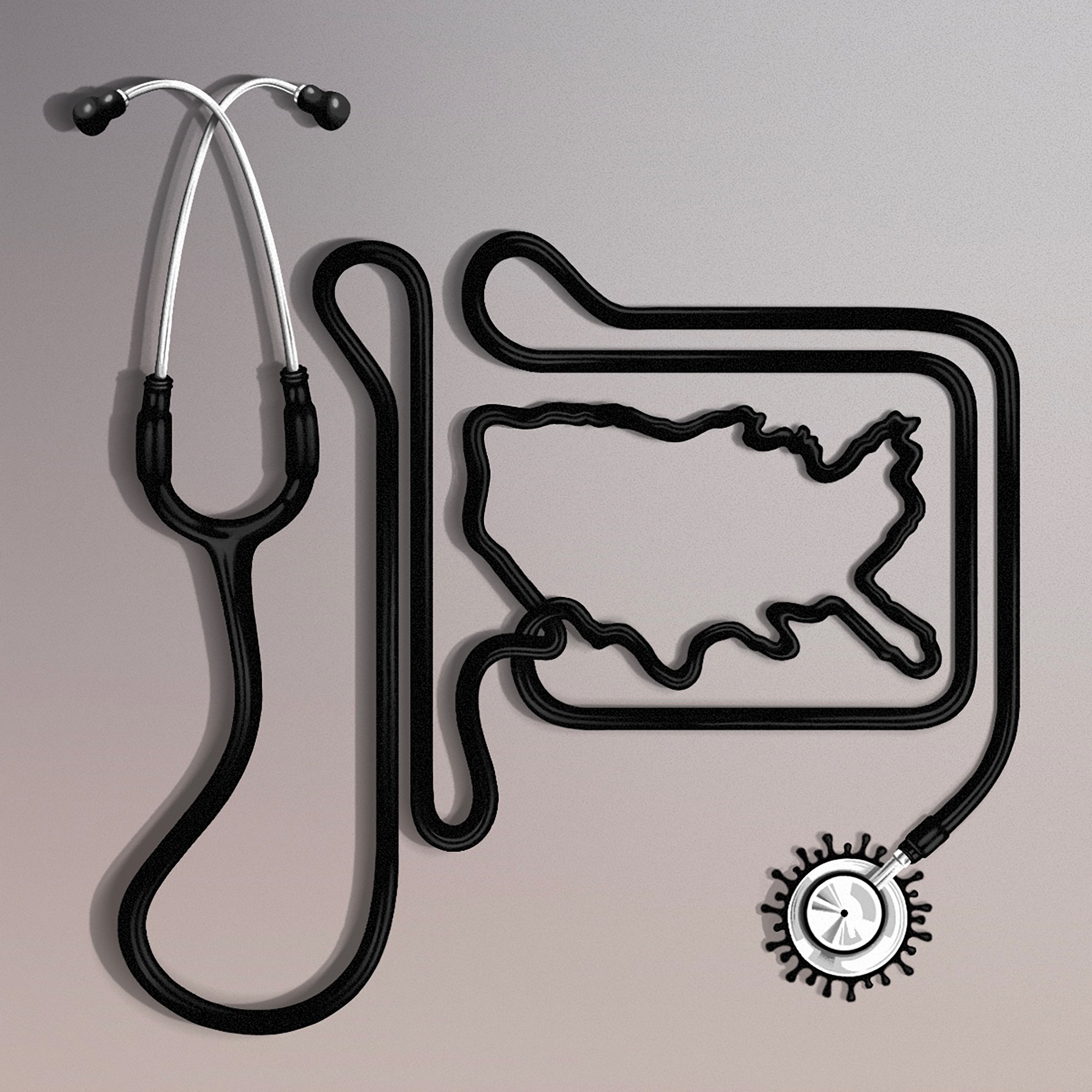
Pulmonologists, emergency responders and intensive-care teams have been the point of the medical spear in battling the COVID-19 pandemic in the U.S. over the past 12 months, but before long, expect another group of specialists to be more engaged than ever: cardiologists. Take a nation that already eats too much, drinks too much, exercises too little and fails too often to show up for regular checkups, put them in lockdown for a year or more, and those behaviors–all of which are drivers of cardiovascular disease–will only get worse.
In a recent survey in the journal Circulation, the American Heart Association (AHA) predicted a surge of cardiovascular death and disease in the months and years to come as a lagging indicator of the lifestyle changes forced upon the world by the pandemic. “We don’t have a lot of well-vetted data up to the minute on the cardiovascular impact of COVID because we are living through the pandemic now,” says Dr. Mitch Elkind, president of the AHA and a professor of neurology and epidemiology at Columbia University. “That new data will come in the next year or two, but we are anticipating that the pandemic will have a significant impact.”
SARS-COV-2, the virus that causes COVID-19, does on occasion infect and damage heart tissue directly. One study published over the summer in JAMA Cardiology, for example, found that of a sample group of 100 people who had recovered from COVID-19, 78 had some inflammation of myocardial tissue or other damage such as scarring. In another JAMA Cardiology study, researchers reported finding SARS-CoV-2 in the heart tissue of 61.5% of 39 patients who had died due to COVID-19. The sample groups in both studies were small, and in the overwhelming number of cases of coronavirus death, heart failure is not the proximate cause. But there’s a related truth: the pandemic seems to be leading people into developing the very lifestyle factors that cause heart disease over the long term.
Consider a September 2020 study in JAMA that showed that alcohol consumption had increased 14% in a sample group of 1,540 adults during the pandemic. Or the study (from the same month) in Psychiatry of 3,052 adults showing a decrease in physical activity in 32.3% of adults who were previously physically active. Or the survey conducted by the COVID Symptom Study (again, from September 2020) showing that 31% of adults had reported snacking more during lockdowns.
It’s not just eating, drinking and sitting still that can be killers. Elkind and the AHA also cite emotional stress caused by economic hardship, and depression as the isolation of quarantining drags on. When hospitals and doctors’ offices are seen as viral hot zones, people are less likely to show up for routine monitoring of hypertension, cholesterol levels and other chronic conditions that can have a cardiovascular impact. Acute cardiac events too are being ignored. “We know people have delayed getting care for heart attacks and strokes, which can lead to poorer outcomes,” said Dr. Salim Virani, who chaired the committee that wrote up the AHA’s statistical update, in a statement.
In the U.S., about 655,000 people die of heart disease each year, according to the U.S. Centers for Disease Control and Prevention, a figure that outpaces the 360,000 reported to have died of COVID-19 in 2020. But those statistics don’t tell the whole story. Elkind estimates as many as 500,000 additional U.S. deaths in the past year due to people not getting prompt medical help for severe or emergency medical conditions, many of which were cardiovascular in nature.
The good news buried in the bad is that some of the cardiovascular dangers associated with COVID-19 can be controlled. Just as masks mitigate COVID-19 transmission, so can healthier lifestyle choices mitigate heart-disease risks. A pandemic is a ferocious challenge, but at least some aspects of it can–with effort–be surmountable.
More Must-Reads from TIME
- Cybersecurity Experts Are Sounding the Alarm on DOGE
- Meet the 2025 Women of the Year
- The Harsh Truth About Disability Inclusion
- Why Do More Young Adults Have Cancer?
- Colman Domingo Leads With Radical Love
- How to Get Better at Doing Things Alone
- Michelle Zauner Stares Down the Darkness
Write to Jeffrey Kluger at jeffrey.kluger@time.com